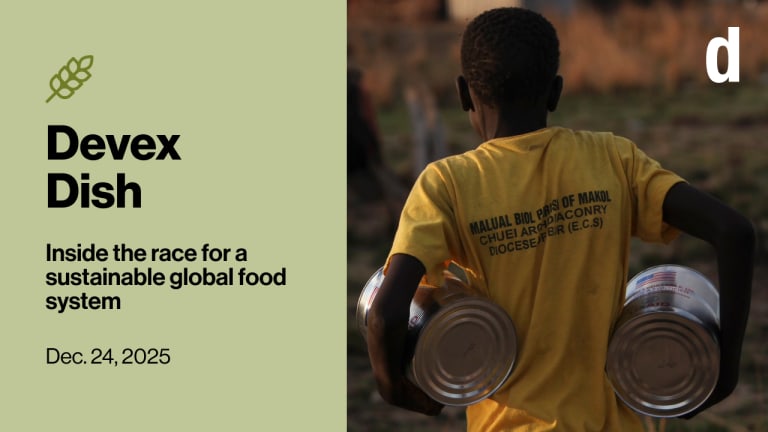
Sustainability and scale are two of the development world’s favorite buzz words. How many computers, condoms, pills or libraries can you distribute or build, across how many regions? One question always stops me in my tracks: “How many children can you get for the least amount of money?”
All too often, nobody asks the important question: How well do you actually serve the people you are trying to reach?
I strongly believe that sustainability and scale must be connected to quality — it takes time to create long-term change, and depth to change a child’s life.
Twelve years ago, Banks Gwaxula and I founded the Ubuntu Education Fund. We have grown beyond our wildest expectations. Yet we remain in the 3.5 kilometer-radius community we first established in the townships of Port Elizabeth, South Africa, home to 300,000 people, with no plans to expand beyond those borders. We are a working community institution, with no desire to turn into an empire.
Don’t get me wrong; we have impressive numbers. We have over 2,000 abused and orphaned children on the pathway out of poverty. But for us it’s not about how many children we work with, but how deeply we affect each child. We are doing the most basic thing that people have always done in order to prosper: We are raising children.
This means providing every meal every day. It means helping with homework and tutoring in math. It means reaching out to support grandmothers and uncles, so that when we send a child home, she is going to a stable home. It means going through exams, illnesses, adolescence, clothes shopping, counseling, and so much more. Raising a child is not always dramatic. It is painstaking, repetitious attention to detail, day after day.
Our investment in each child is substantial, but it yields an incredibly high return. Every dollar invested in Ubuntu produces a net gain to society of $2.20. A $1 investment in an Ubuntu child results in real lifetime earnings of $8.70 for that child. We invest over $90,000 on average in a child (much less than it would cost to raise a child in the United States or the United Kingdom), working with each one from birth through age 22 – from cradle to career – to produce a net value to society of $195,000. A child from the community who is not enrolled in our program costs society over $9,000. Clearly, it is expensive not to invest in these children.

At Ubuntu, we have always believed nothing is more sustainable than investing in a child day after day over her whole life. Our daily round of detailed tasks leads to some spectacular results. For example, Ubuntu students matriculate at more than twice the rate of their peers in the community. Ubuntu clients have a 96 percent adherence rate to their HIV regimens, compared to 56 percent in the community at large. Their tuberculosis regimen adherence rate is 94 percent, compared to 57 percent in the rest of the Port Elizabeth region.
We recruit and train from the communities in which we work, and believe that we need to look after the health and well-being of our employees. We compete with the private sector, and hire the best, brightest and most qualified. The benefits are clear: We have a fantastic, hard-working staff that brings passion and care and commitment to every aspect of their interactions. The nonprofit sector must stop undermining itself and begin to invest in its own institutional capacity building.
For us, sustainability means developing a lasting organization bigger than those who started it. Scale is about depth, not geographical expansion. We have a very simple goal, one that’s familiar to anyone who has parented a child. Give that child the best you can. Provide her with health care, a stable home environment, school supplies, a quality education, and help her achieve as much as she can. No one is judged by how many children he or she has. All that matters is how well you raise the children you do have. That is the cornerstone of our work.
Ubuntu’s theory of change applies to everyone from the largest multilateral organizations to the smallest grassroots groups: Know your community, involve your community, focus on your community, invest in your community over the long term, and you will foster meaningful change.
Want to read more about innovative financing for development? Check out Busannovate, a blog brought to you by Devex in partnership with the United Nations Foundation, and launched with a thought-provoking guest opinion by Nobel Peace Prize winner Muhammad Yunus.








